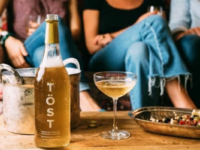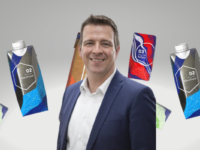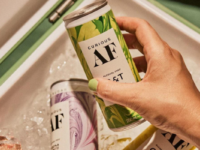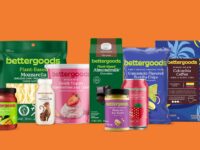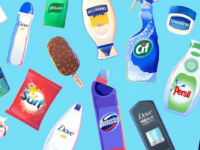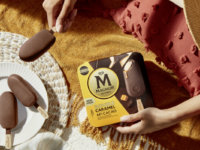
The Global Climate Action Summit was held recently in San Francisco with FMCG giants pledging their commitment to address climate change.
Unilever and Walmart representatives spoke at the summit to discuss how they will deal with the pressing global issue.
“With this partnership Walmart and Unilever are advancing an innovative new approach to help companies meet their climate goals,” said Carter Roberts, president and CEO of the World Wildlife Fund (WWF) US.
“Decoupling supply chains from deforestation would deliver three important benefits – reducing greenhouse gas emissions, securing essential habitat, and restoring species like orangutans and elephants that call Sabah their home. And any success along this front could spur similar collaboration and results for key industries and regions across the world.”
1.6 billion people depend directly on forests for their livelihoods, shelter, food and fuel, but even city-dwellers need forests and other ecosystems for clean air and water #GCAS2018 #StepUp2018 pic.twitter.com/N7gTOpwfCW
— WWF (@WWF) September 14, 2018
FMCG global business Unilever said it will support work in Sabah, Malaysia to address the deforestation problem. It will certify 60,000 hectares of land in the Southeast Asian country as part of a program led by Forever Sabah, WWF Malaysia and PONGO Alliance.
The Malaysian state is pushing to certify 100 per cent its palm oil production to Roundtable on Sustainable Palm Oil (RSPO) certification by 2025. The WWF said that this move can help reduce 17 million metric tonnes of CO2e in greenhouse gas emissions by 2030.
“At the COP 21 climate negotiations we pledged to support a jurisdictional approach of production and protection. This means we are moving our sourcing to areas that have good forest management and work in partnership to reconcile competing, social, economic and environmental objectives. Our ultimate ambition is to help drive a sustainable palm oil industry,” Unilever chief sustainability officer, Jeff Seabright said.
Unilever and Walmart have also both pledged to halt deforestation in the area through the Project Gigaton. The initiative aims to bring together value chain partners and other stakeholders in Sabah, Malaysia; North Sumatra, Indonesia; and Mato Grosso, Brazil to achieve sustainable landscapes through the implementation of jurisdictional approaches.
“Walmart commends Unilever on helping implement this model in Sabah and we invite other suppliers to join us in working to reduce deforestation through innovative sourcing strategies like jurisdictional approaches. These multi-stakeholder initiatives in critical regions are needed to reduce forest loss and degradation, and improve the health and sustainability of the people who depend on forests,” Kathleen McLaughlin, senior vice president and chief sustainability officer for Walmart said.
New York City is the biggest city in the country and that's why we're setting big goals: We will invest $4 billion of our pension funds in climate solutions. It's time to unlock the power of the grassroots. It's time for every city to join us. #GCAS2018 pic.twitter.com/aG3ZHhvM5O
— Mayor Bill de Blasio (@NYCMayor) September 14, 2018
Meanwhile, confectionery giant Nestlé said in a statement that it is committed to the company’s 2020 No Deforestation program by becoming the first global food company to implement Starling. It is a satellite-based service that monitors 100 per cent of its global palm oil supply chains, developed by Airbus and The Forest Trust (TFT). By 2017, 63 per cent of Nestlé global supply chain was deforestation-free.
“Nestlé has always been committed to source the raw materials we need to make our products in a responsible manner. In 2010, we made a No Deforestation commitment stating that all our products globally will not be associated with deforestation by 2020,” said Magdi Batato, executive vice president, head of Operations, Nestlé S.A.
Earlier this year, the confectionery company has committed to achieving 100 per cent RPSO certified sustainable palm oil by 2023. The company said by December 2018, 100 per cent of Nestlé’s palm oil supply chain, certified or not, will be monitored for deforestation using satellite imagery. It has also released the names of the direct suppliers and mills that it buys palm oil from.
“In order to accelerate this journey, we have worked with Airbus and TFT since mid-2016 to embark on a pilot project over the Perak landscape in Malaysia. Starling satellite monitoring is a game changer to achieve transparency in our supply chain and we are pleased to extend this collaboration to cover 100 per cent of Nestlé’s global palm oil supply chains by the end of the year. We will also extend this program to cover our pulp and paper supply chains next year as well as soya at a later stage.”
“We welcome Nestlé’s commitment to using Starling to monitor 100 per cent of its palm oil supply chain. When we started our No Deforestation journey with Nestlé in 2010, no tools existed for them to effectively monitor their suppliers in this way and a solution had to be created. Now, we are pleased to say, there is a ready and able tool to help companies rid deforestation from their supply chains. We see this milestone as the next step in our journey with Nestlé,” Bastien Sachet, CEO of TFT said.
Benjamin Ware, global head of Responsible Sourcing, Nestlé SA said the new technology will help the confectionery giant more in publicly disclosing what they can find to deal with the problem of palm oil and deforestation.
“This information along with our progress reports will be shared with our stakeholders, including consumers, investors and retailers. They will be made available in our Transparency Dashboard to be published on our website by 1 March 2019,” added Ware.





